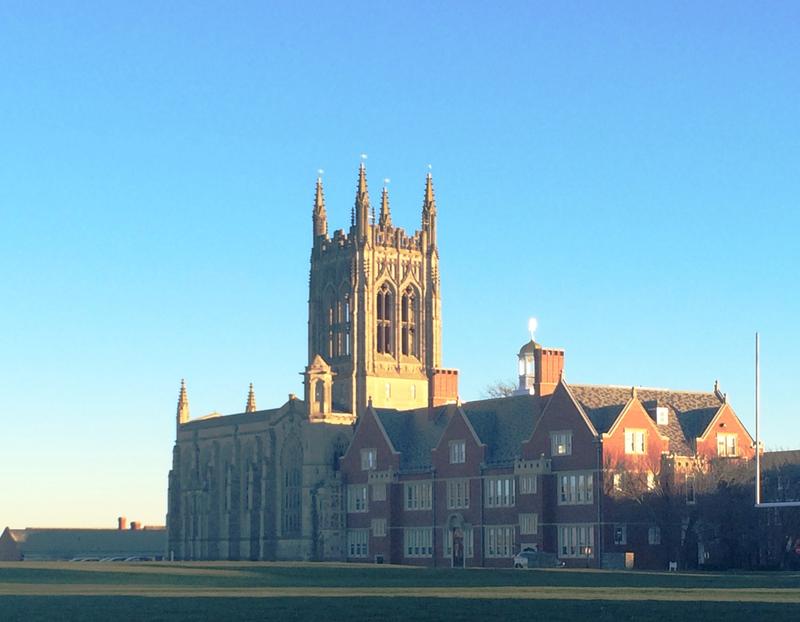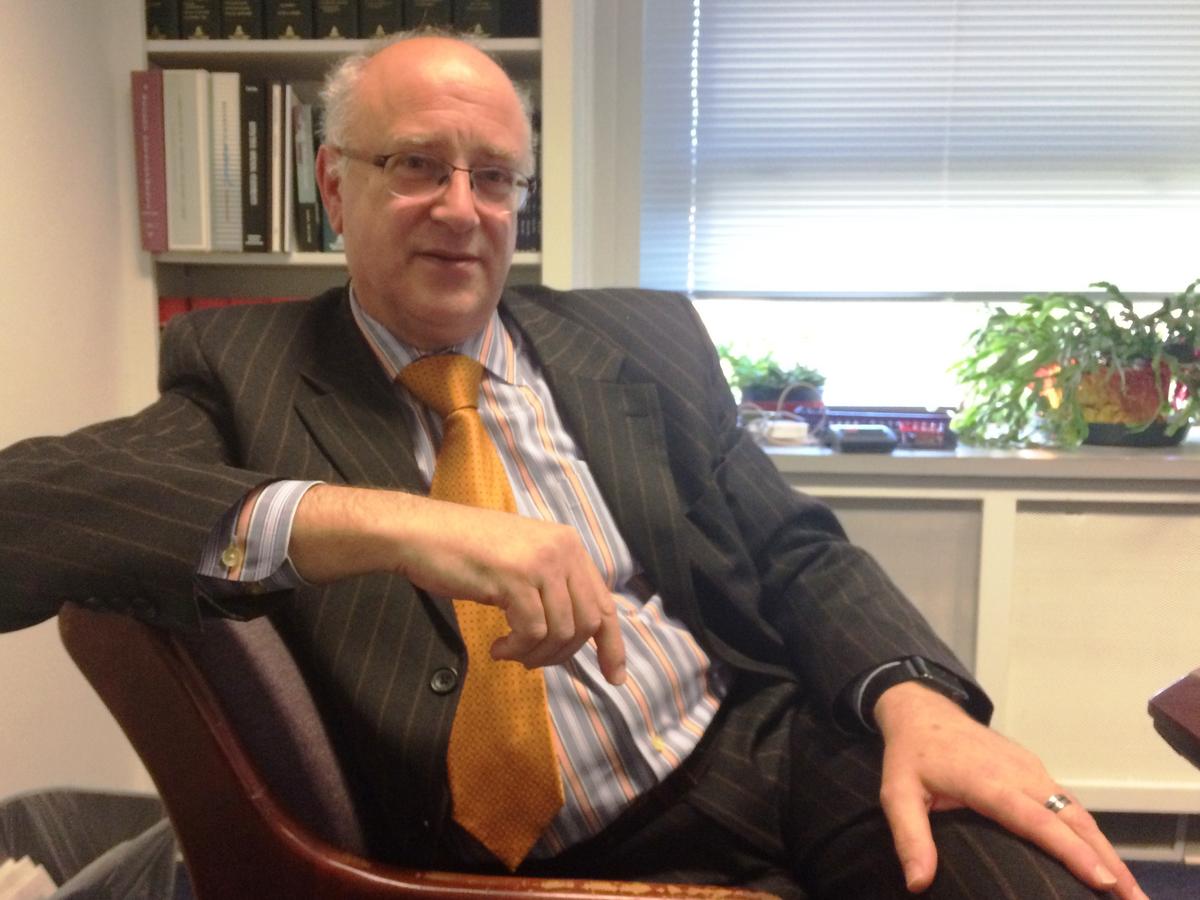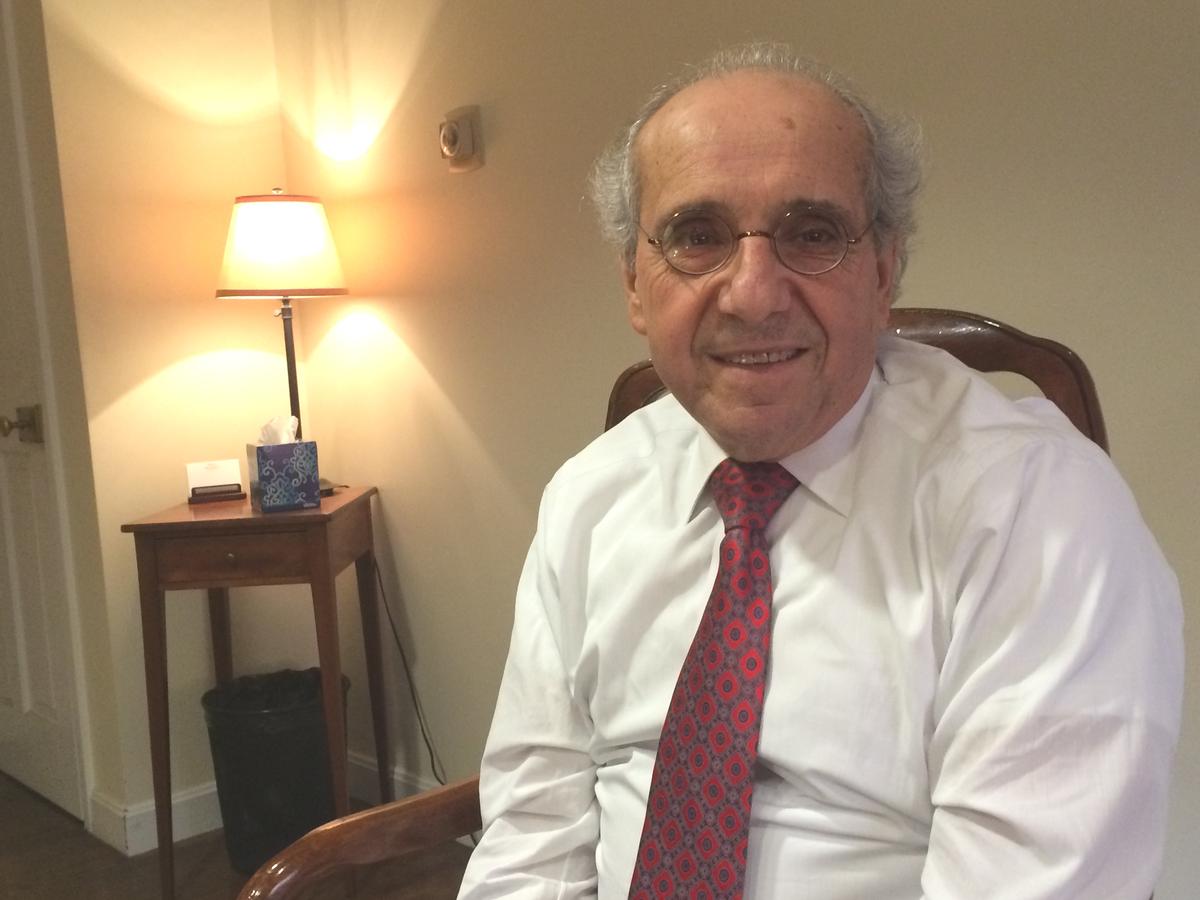State Law "Murky" on Reporting Sexual Abuse
Rhode Island Public Radio
Alumni from St. Georgeís School in Middletown have accused the school of breaking the law by failing to report allegations of sexual abuse spanning decades. Thereís more ambiguity in state law than you might think, and it may have contributed to the school's failure to report the abuse. It sounds obvious that a school should report allegations of sexual abuse right away. But when the alleged abuser is a teacher or another school employee, the reality is that doesnít always happen. "Most instances where these allegations come to light, the perpetrator is in denial or fabricating excuses. Itís rare that an administrator is given a clear-cut case," said Tim Conlon, an attorney who has handled many cases of sexual abuse involving schools and the Catholic Church. According to Conlon, institutions like a church or a school generally want to avoid controversy, and parents may seek to shield their children from further trauma. "You often will have parents who would love to avoid putting their student or their child in a position of having to testify or proceed with some formal action," said Conlon. "So what Iíve seen in many school departments is a tendency of the administration to look for the easy out, which is a resignation." So the employee resigns but may find new employment at another school, and thereís no public record or official investigation into the allegations of sexual abuse.
Conlon believes that part of the problem may lie in the murky language of Rhode Island law. In cases he pursued, the state child welfare agency, DCYF, or DCF, as it was known in the 70s and 80s, didnít get involved in allegations of sexual abuse between teachers and students. "I can tell you that going back historically they absolutely did not. And I can tell you that as a result, multiple school entities indicated they werenít reporting these to DCF because in the instances they had, they were told DCF didnít do anything." In the sexual abuse scandal involving St. Georgeís School in Middletown, attorneys for the schoolís former students and newspapers like The Boston Globe and The Providence Journal have repeatedly cited Rhode Islandís mandatory reporting law for abused and neglected children. The law appears clear. It says anyone who knows or suspects a broad range of child abuse, including sexual abuse, must report it to DCYF within 24 hours. But thereís a loophole. "The mandatory child abuse and neglect reporting statute, which has been in place since the early 80s, applies to parents and guardians, or employees of DCYF licensed child care programs," according to Mike Raia, spokesman for the state Department of Health and Human Services and DCYF. As Raia explains it, the mandatory reporting statute applies only when the abuser is a parent, legal guardian or a person licensed by DCYF, like a foster parent or an employee at a residential care facility. When asked whether a school should report abuse involving teachers to DCYF, Raia said, ďNo.Ē "That investigative authority is in the purview of law enforcement," said Raia. "And should a case along these lines come in, we would direct that toward law enforcement for a proper criminal investigation." Raia says schools should report allegations of abuse involving their employees directly to law enforcement, yet the mandatory reporting statute fails to mention that requirement. And DCYFís interpretation of the law leaves a question about whether any legal requirement exists to report abuse suspected of a school employee, a church employee or even a civic organization like the Boy Scouts. What is clear is that DCYF would not investigate those reports. Amato DeLuca, another attorney who has handled cases of sexual assault, believes that despite the ambiguity in the mandatory reporting statute, schools still have a duty to report sexual abuse to police. "I think they have to err on the side of caution and protecting students, thatís their job," DeLuca said.
DeLuca points to a duty under the law to use whatís known as "reasonable care." In other words, you have to do whatís reasonable under the circumstances, and a school in particular has a responsibility to both educate and protect the students in its care. "If they see anything untoward, in this case a sexual assault or sexual abuse or even bullying, they have an obligation to do something about it," said DeLuca. "Either tell the parents or bring in authorities to deal with it." With child welfare officials distancing themselves from sexual abuse cases involving schools, police remain the authority to bring in. But pursing prosecution for sexual assault can be tricky, especially when the victim is older than 16. "The unfortunate reality is that it is not a crime for a teacher to have sex with a 16 or 17-year-old student in Rhode Island," said family lawyer Tim Colon. "You could argue that it should be a crime, but I can show you multiple police reports in which the cops walk away from a criminal prosecution on the theory that the 16-year-old-girl could validly consent to sex with the teacher. " From Conlon's perspective, the law is absurd, and he emphasizes that schools should still report all forms of alleged sexual abuse as often and as loudly as possible: to law enforcement, child welfare officials and the state Department of Education, which can revoke a teaching license, even if none of them take action. In his experience, silence can be dangerous. "Sadly you can have instances where a culture of acceptance develops within an institution, whether itís a school, could be a civic organization, could be a parish church," said Conlon. "The persons who are involved in that institution become accustomed to a code of silence, if you will. And that code of silence allows the perpetrator to continue to offend." Mandatory reporting laws are intended to break that "code of silence," by requiring teachers, social workers and others to report suspicions of child abuse. But Rhode Islandís law is written more narrowly than many people think, and it leaves schools and other organizations without a clear legal path to follow when allegations of sexual abuse involve their employees.
|
.
Any original material on these pages is copyright © BishopAccountability.org 2004. Reproduce freely with attribution.


